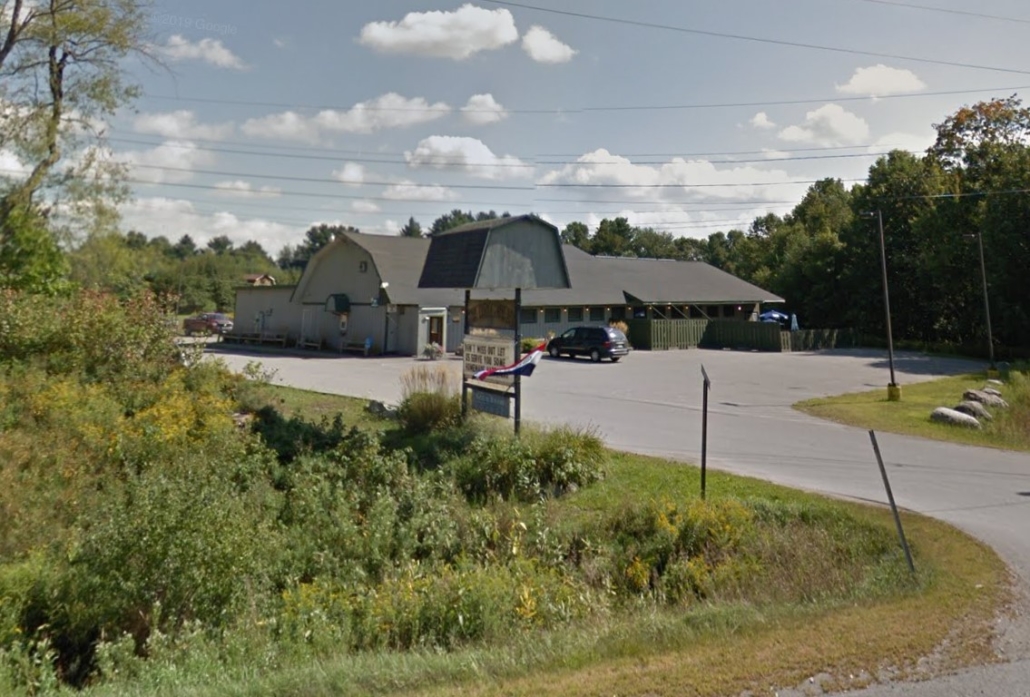Managing lands for high quality water: Kennebec Water District’s watershed management
 by Robbie Bickford
by Robbie Bickford
Director of Water Quality, Kennebec Water District
China Lake
In an effort to ensure that KWD’s watershed land is managed to prompt the highest possible water quality in China Lake (or “the Lake”), KWD has contracted with Comprehensive Land Technologies, Inc. (CLT), of China, to assess the health of the forested land and develop a Forest Management Plan to help guide future decisions. The water quality of the lake directly impacts the health of the ecosystem, property values, recreational opportunities as well as public health.
The plan provides recommendations for improving the health of the forest through selective harvesting to prompt an uneven-aged, mixed species forest. An uneven-aged, mixed species forest has been found to be the most effective buffer to limit erosion and to trap nutrients and contaminants in runoff. The full Forest Management Plan can be reviewed on KWD’s website.
In 2020 and 2021, KWD anticipates conducting some selective harvesting of the forest on the North and South Peninsulas by removing over-mature trees and promoting new growth. This harvesting will focus on maintaining a healthy forest and any harvesting activities will strictly adhere to industry “Best Management Practices” to minimize the impact on the land.
China Lake became the source of supply for the Kennebec Water District (KWD) in 1905. At this time, the Lake’s West Basin was more developed than the East Basin with much of the land being used for raising livestock and other agricultural purposes. In 1909, seeing that development around China Lake was increasing, KWD began purchasing the shoreline land around the West Basin. Subsequently, thousands of trees were planted to reforest areas that had been previously cleared.
Today, KWD owns approximately 344 acres in the China Lake watershed consisting of a nearly continuous, approximately 200-foot-wide, strip of land surrounding the West Basin including the areas that are known as the North and South Peninsulas.
KWD works closely with other organizations concerned about the quality of the water in China Lake including the China Lake Association and the China Regional Lake Alliance. In recent years, KWD has provided funding for the LakeSmart program, the Courtesy Boat Inspection program, and gravel road improvement projects. KWD is a partner in the current Kennebec Country Water and Soil Conservation District’s project to develop a watershed-based management plan for the Lake.
KWD will be hosting a public meeting in the Fall of 2020 to describe KWD’s plans to abutting landowners, the communities surrounding the lake, and other interested parties. Actual scheduling of the meeting will be contingent on group gathering restrictions imposed by the State of Maine due to COVID-19.
For more information on KWD and the China Lake Watershed visit KWD’s website (www.KennebecWater.org) and Facebook page.


 The Memorial Day parade, sponsored by Boynton-Webber American Legion Post #179, scheduled for Monday, May 25, has been canceled due to the coronavirus Covid-19 pandamec.
The Memorial Day parade, sponsored by Boynton-Webber American Legion Post #179, scheduled for Monday, May 25, has been canceled due to the coronavirus Covid-19 pandamec.

 In a Facebook post, Wardwell declared, “It is with immense sadness that I am writing this message to let you all know that the China Dine-ah will not be reopening for the foreseeable future. Being closed for what will be ten weeks on June 1, and now finding out that all of the fairs and many other events have been canceled, in addition to not being allowed to run at full capacity, indicates that we will be losing much of our summer business that we rely on.
In a Facebook post, Wardwell declared, “It is with immense sadness that I am writing this message to let you all know that the China Dine-ah will not be reopening for the foreseeable future. Being closed for what will be ten weeks on June 1, and now finding out that all of the fairs and many other events have been canceled, in addition to not being allowed to run at full capacity, indicates that we will be losing much of our summer business that we rely on.



